
Karachi: Scientia Pakistan successfully organized the 1st Science Writing Workshop in Karachi on September 12-13 at Habib University. The event was generously sponsored by the Association for Computing Machinery – Women (ACM-W) as part of their “Celebrating Women in Computing” initiative. ACM is the world’s largest educational and scientific computing society, uniting computing professionals, educators, and researchers to share knowledge, advance the field of computing, and promote ethical standards.
Scientia is a leading science magazine in Pakistan that spotlights young science writers and communicators. Since February 2019, it has been publishing monthly and bi-monthly editions focused on various specific science themes. The organization also conducts remote “Science Writing Internships/Workshops” biennially, starting in 2023, and has established University Ambassador Programs across the nation.
Scientia provides a genuine platform for students, researchers, scientists, and communicators, promoting scientific awareness and critical thinking in a society often influenced by misinformation and pseudoscience. Additionally, the platform focuses on amplifying and connecting the voices of the Global South.
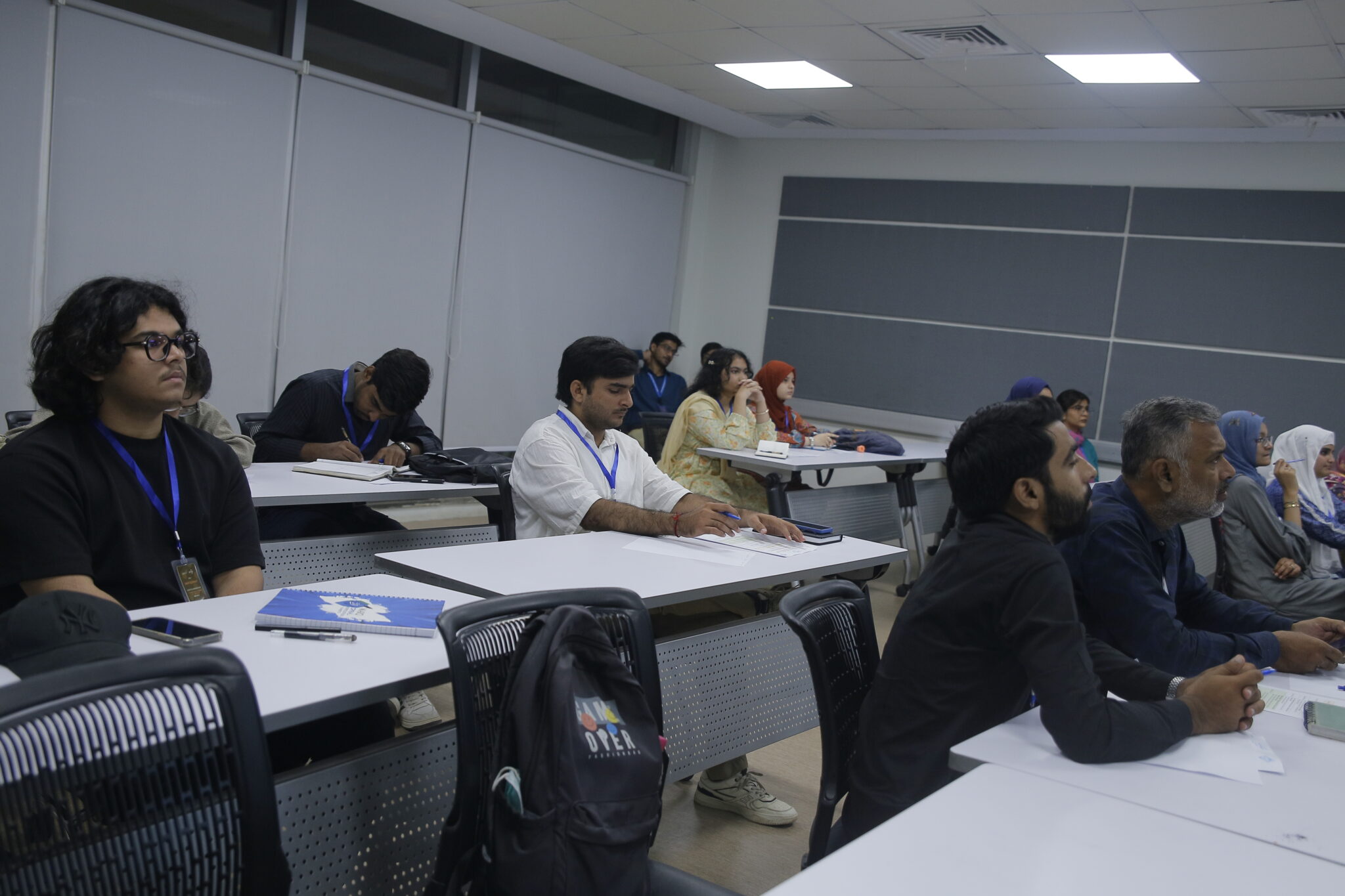
The two-day workshop was one of the first in-person events organised in collaboration with the Natural Science Club (NSC), Habib University, Karachi, aimed to promote scientific writing and critical thinking among students, professionals, and researchers across the city. The workshop attracted a large number of students from Habib University and outsiders, demonstrating their enthusiasm for scientific research, science journalism, and communication.
The participants and speakers expressed immense appreciation to the entire Scientia team, sponsors from ACM-W, the NSC’s volunteers, and contributors both on and off-campus for making this event a success. This achievement was made possible by the energetic, dynamic, and professional speakers and facilitators. The audience comprised a diverse range of age groups, from teenagers to middle-aged adults.
The two-day event featured several major highlights, including training sessions, keynote speeches, virtual lectures, and panel discussions. Renowned journalists and trainers conducted the training sessions, including Aleezah Fatima Hashmi, Sheema Siddiqui, Suhail Yusuf, and Ms. Rizwana Naseem.
These experts emphasised the importance of science stories in driving societal change and development. They taught participants the fundamentals of discovering stories in labs, fields, or communities, as well as “How to Pitch those Stories to Editors” and write them compellingly and engagingly for the general public.
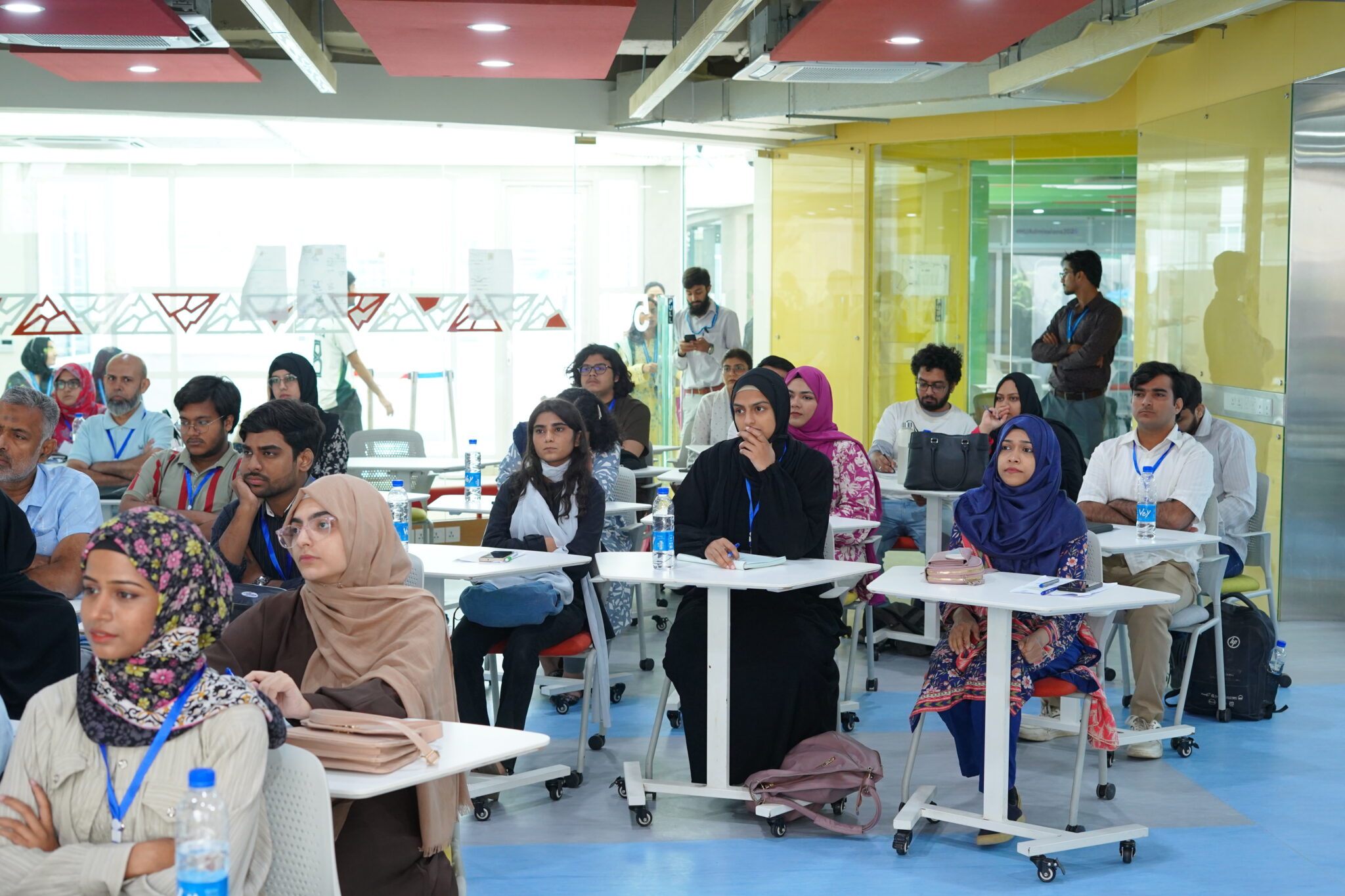
Over 65 students and professionals from Karachi, Hyderabad, Nawab Shah, and other parts of the province attended these sessions, demonstrating their enthusiasm for learning and supporting Scientia’s mission to reshape the narrative of science journalism in Pakistan. These events will help increase public understanding of science and bring it into the mainstream, consequently, bridging the gap between media and academia in the country.
Another highlight of the event was the panel discussion featuring “four diverse people from science and interdisciplinary backgrounds; renowned independent journalist and Scientia advisory board member Ms. Zofeen T. Ebrahim, Co-producer of the biopic “Salam – the Film”, Mr. Zakir Thaver, Prof. Dr Humaira Jamshed, a faculty member at Habib University and Scientia’s cofounder Fouz Siddiqui and moderated by Ms. Maham Maqsood (Managing Editor of Scientia).
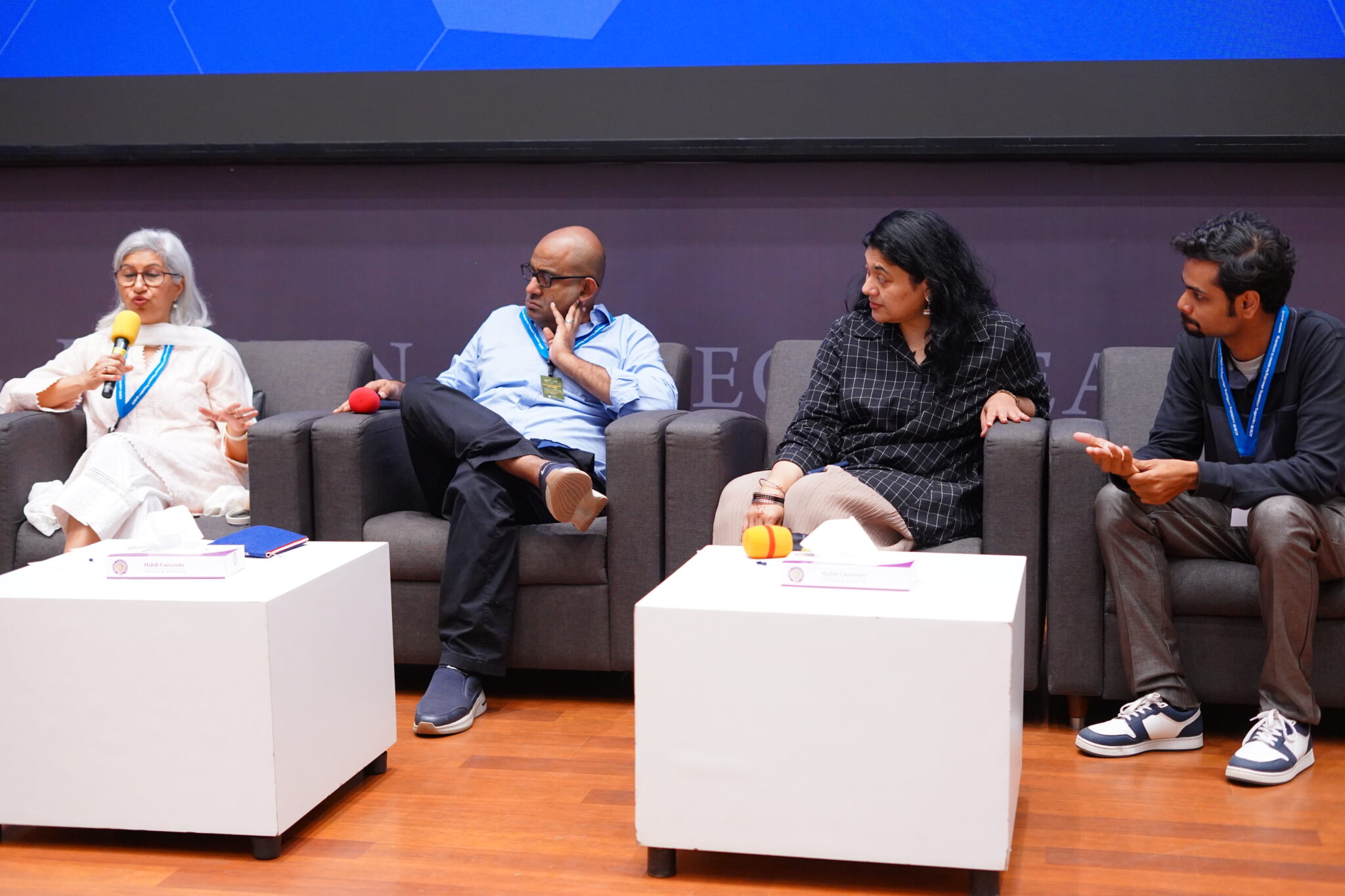
The panel discussion was a thought-provoking exploration of the theme “Open Science & Accessibility,” emphasizing the critical need to democratize scientific knowledge. It commenced with a series of pivotal questions aimed at stimulating deep reflection: “Why is Open Science crucial for societal progress?” “In what ways can we, as journalists, writers, scientists, and academics, work collaboratively to enhance the accessibility of scientific information for the general public?” and “What are some prevailing misconceptions that professionals within the science field continue to hold?”
Each panelist, an expert in their respective fields, enriched the conversation with their diverse perspectives, addressing not only the posed questions but also engaging with numerous queries from the audience. This created a vibrant atmosphere for exchange, making it feel as though the experts were gathered in an intimate drawing room, sharing candidly and comfortably about the numerous challenges they face in advocating for Open Science, as well as emphasizing its undeniable significance.
One participant expressed how the dynamic dialogue illuminated the complexities of Open Science, fostering a deeper understanding of its pivotal role in promoting transparency, collaboration, and inclusivity in scientific research.
The audience and participants particularly praised the virtual sessions featuring Mr. Ehsan Masood, a world-renowned science journalist and editor at Nature; Dr. Alex Dainis, an internationally acclaimed science communicator; Dr. Salman Hameed, an astrophysicist and founder of Kainaat Studios; Dr Faisal Ur Rehman, a Space Scientist; and Syed Fawwad Raza, former editor at ARY News. They shared their experiences from working in newsrooms and laboratories, discussing the challenges posed by flawed science. They emphasised the importance of the scientific process in driving national progress by pushing boundaries and offering new perspectives.
There was also a session with Dr Rukiye Altin, ACM – Global Chair, in which she focused on the differences ACM is making worldwide through sponsorships and other critical steps.
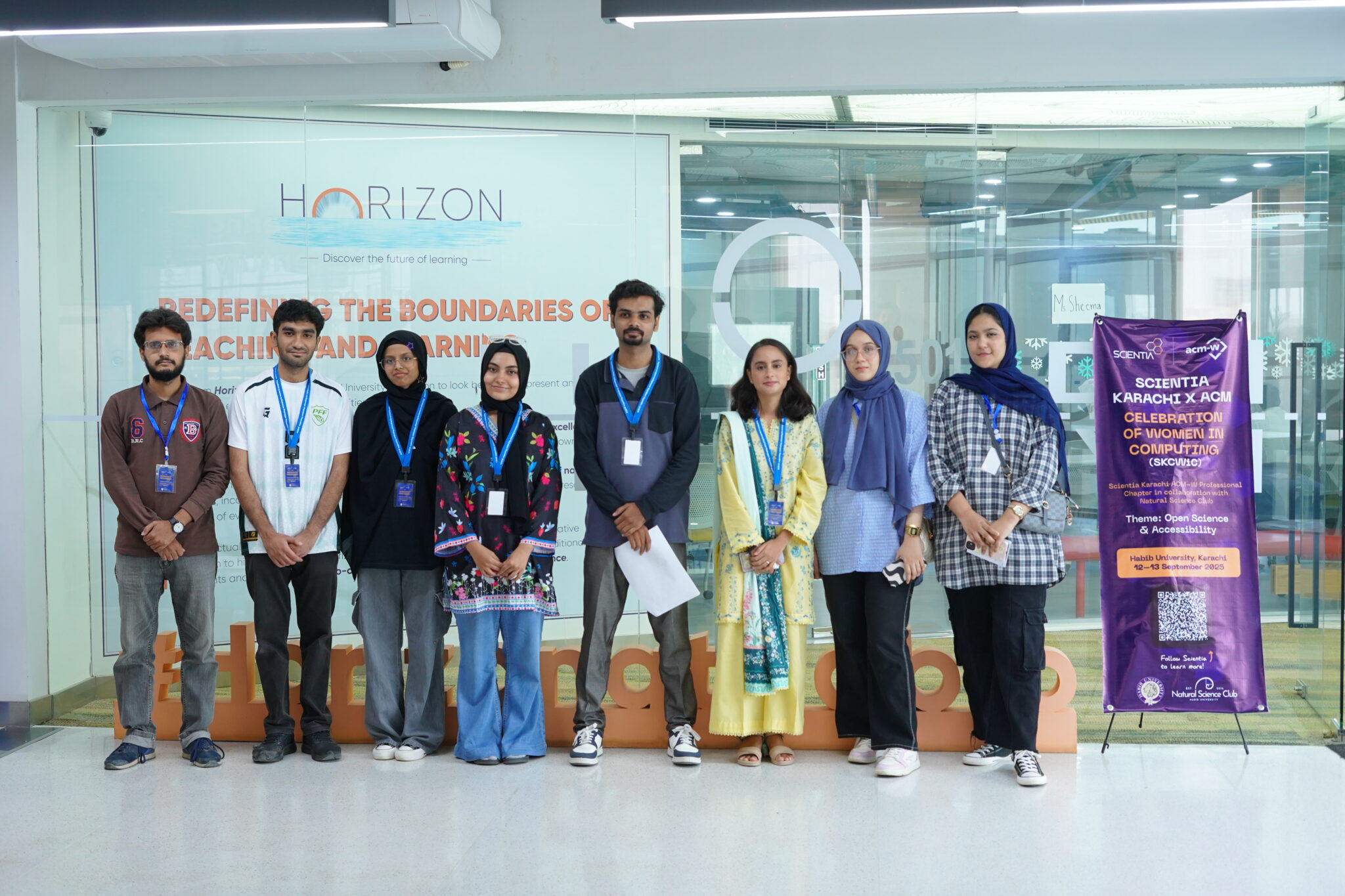
Ameen, a participant in the workshop associated with a prominent public research organization, expressed his excitement about attending the event alongside his niece, daughter, son, and research collaborators. “The workshop was very well organised, featuring hands-on sessions on science communication, keynote speakers, live online interactions with experts from around the world, and an onsite panel discussion,” he said. Ameen noted that the event was planned and conducted professionally, especially for a first-time initiative, and anticipates that it will become a regular annual or biennial activity.
Tahira Nasir, an active participant, expressed her delight in being part of such an amazing event. She commended the entire team of Scientia and the volunteers from Habib University for organising a successful and impactful workshop. “It was a refreshing change in an environment where discussions about science and science communication are often lacking. The workshop was informative, comprehensive, and provided practical insights. Each speaker excelled in conveying their expertise to the audience in an engaging manner,” she added.
Tahira also expressed her appreciation for the Association for Computing Machinery (ACM) for sponsoring the event, noting that securing funding for science communication initiatives can be quite challenging in countries like Pakistan.
Several participants articulated interest in collaborating with Scientia for future events, leveraging the collaborative efforts of multiple universities in Karachi and across the province to expand the activities to a broader audience.
The first-of-its-kind workshop in Karachi was organized under challenging conditions, as the city’s roads were flooded and more rain was expected. The organizing team from Scientia and Habib’s Natural Science Club, primarily made up of students and young professionals, faced several obstacles during these difficult circumstances. Nevertheless, they remained determined and enthusiastic about the event, successfully overcoming each barrier to make it a reality. The teams are eager to organize more events like this in the coming months.
Here are a few more glimpses from the Scientia x ACM – First Science Writing Workshop.
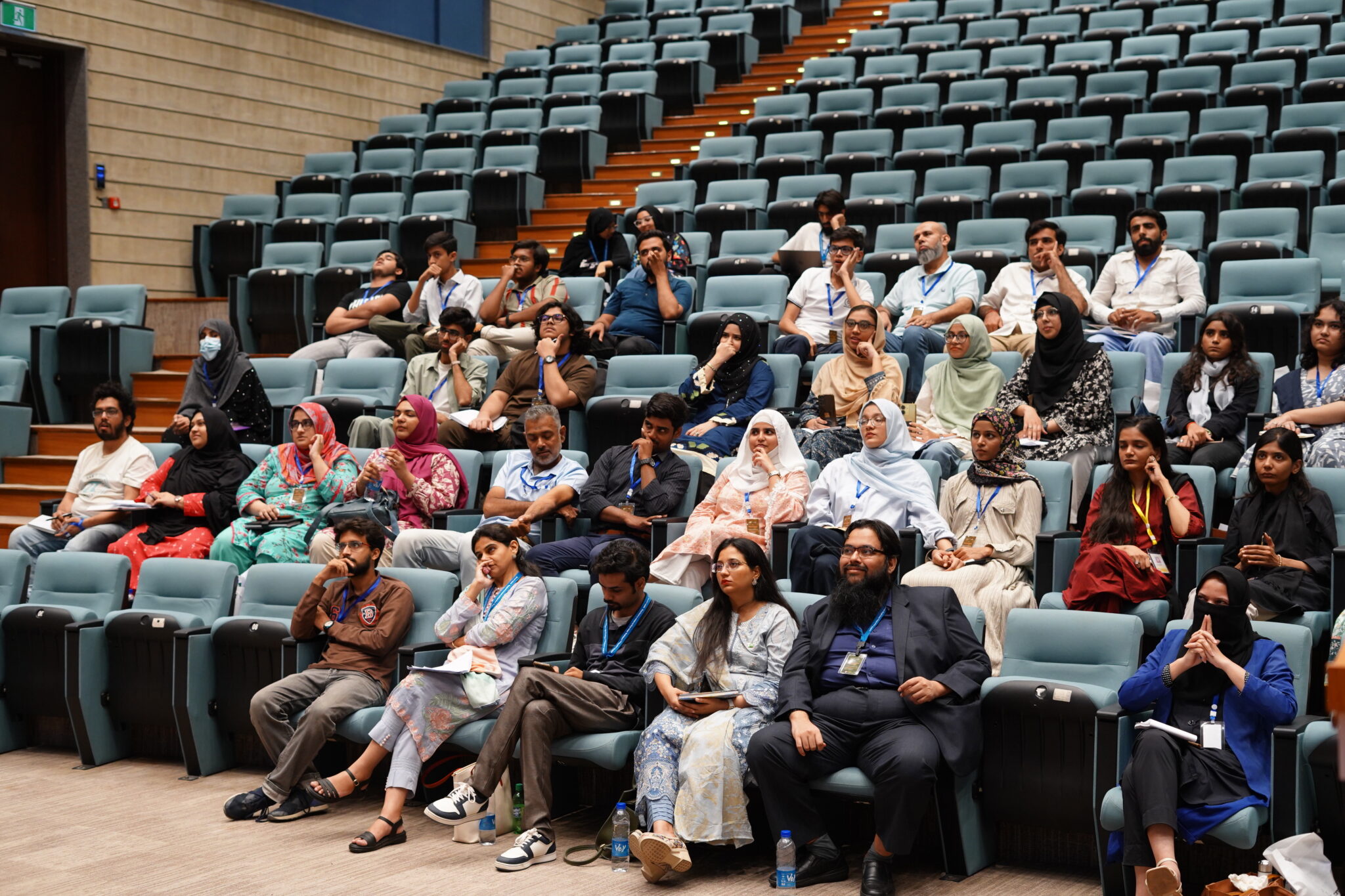
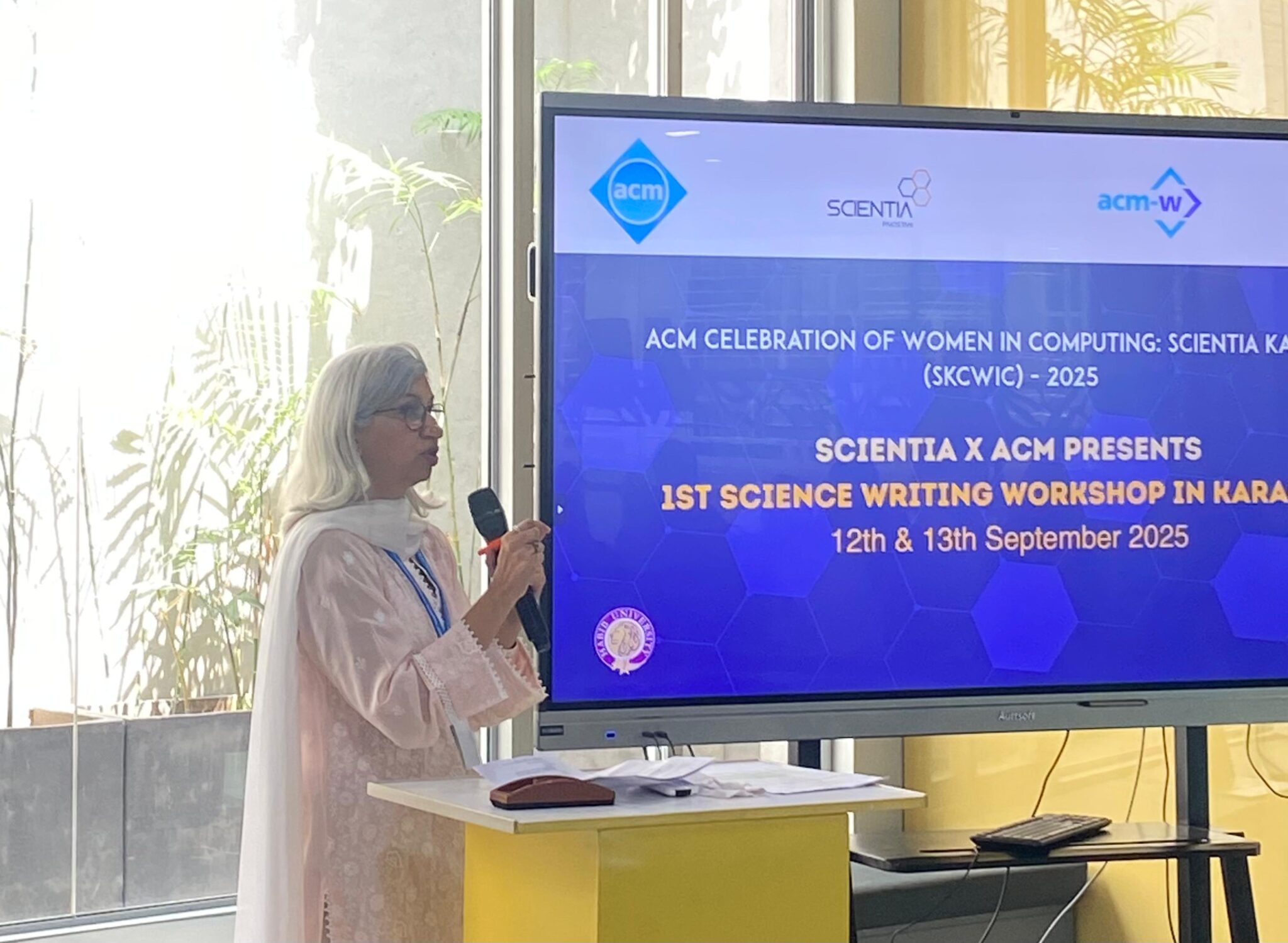

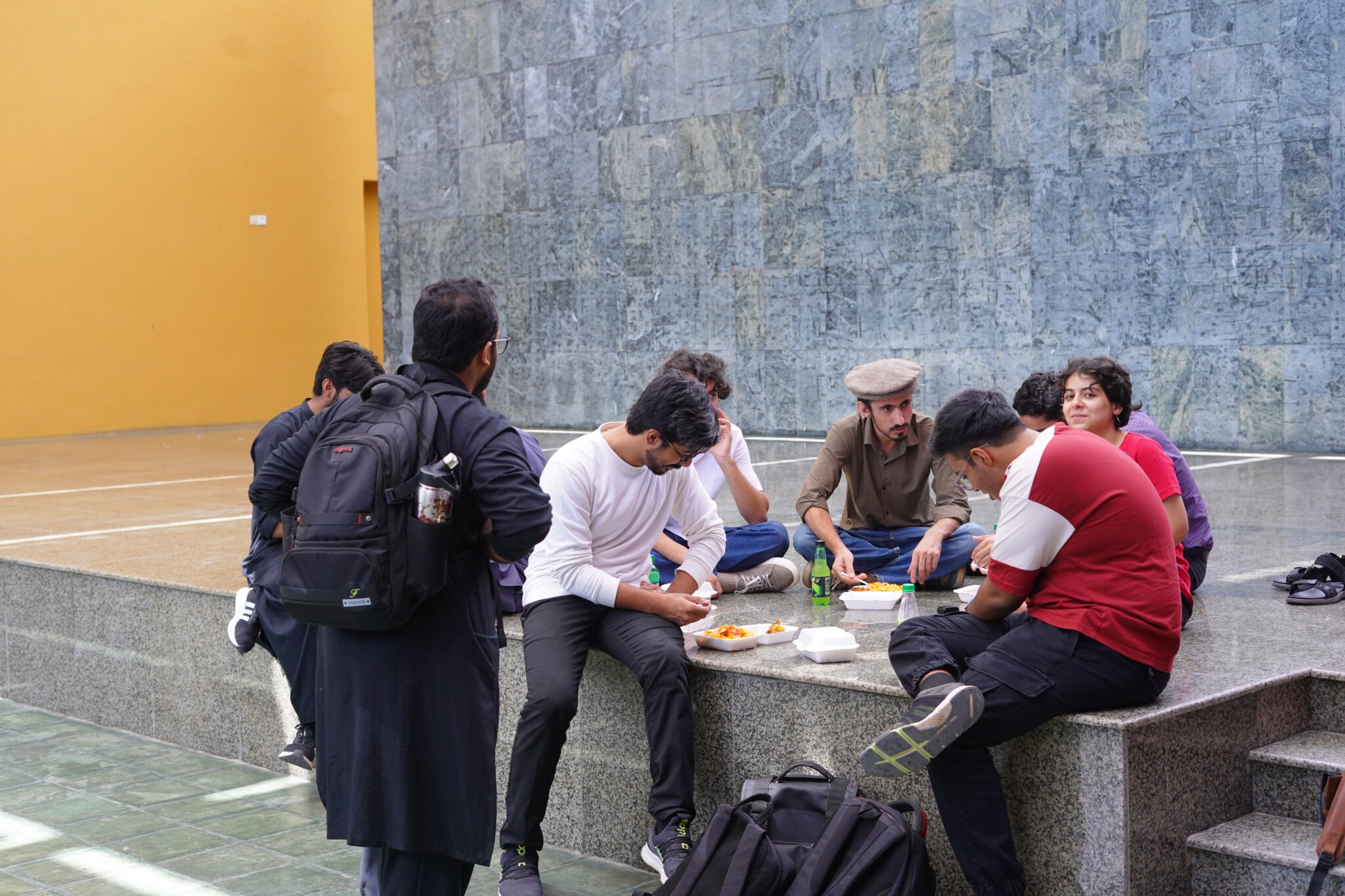

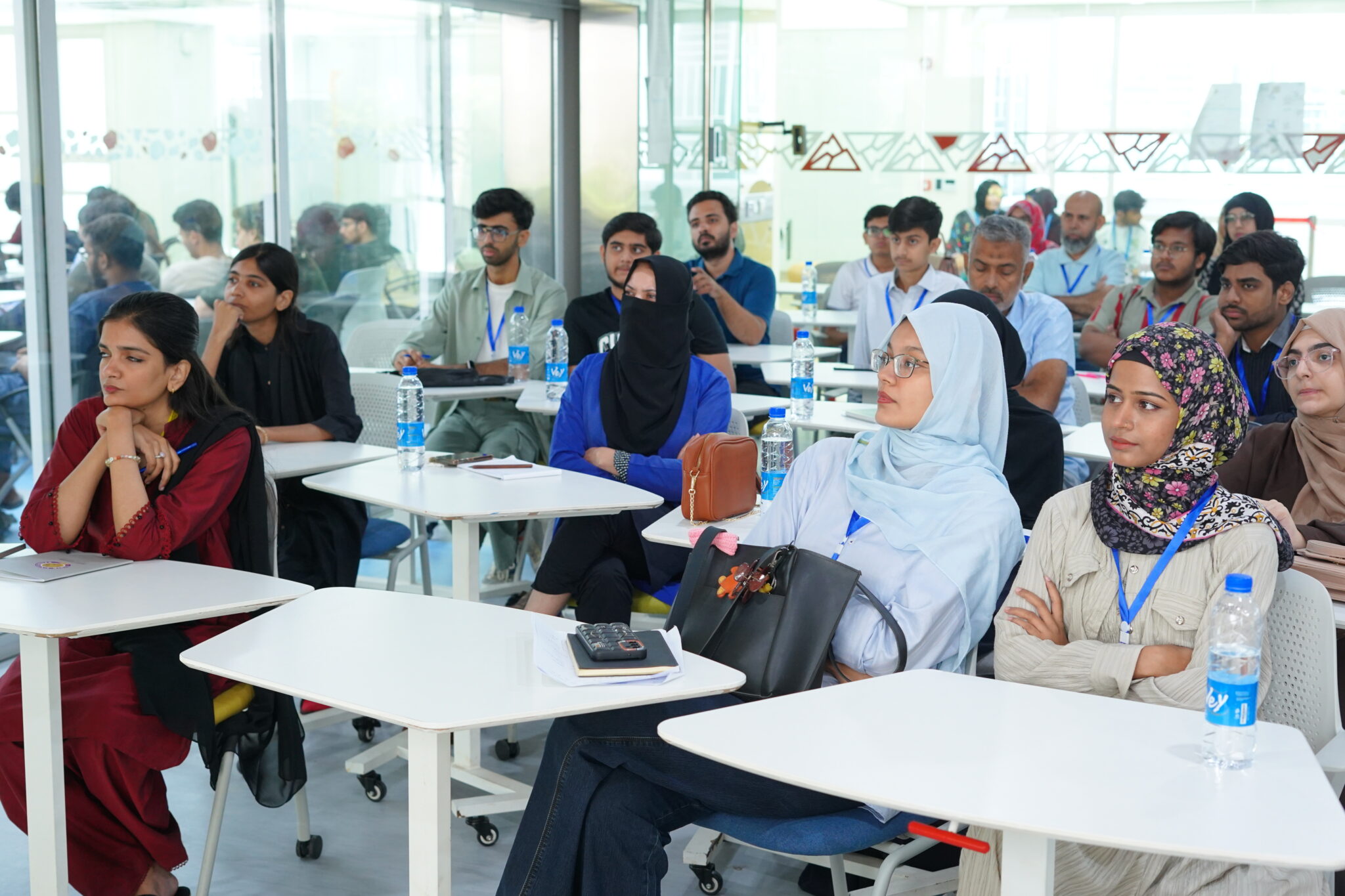
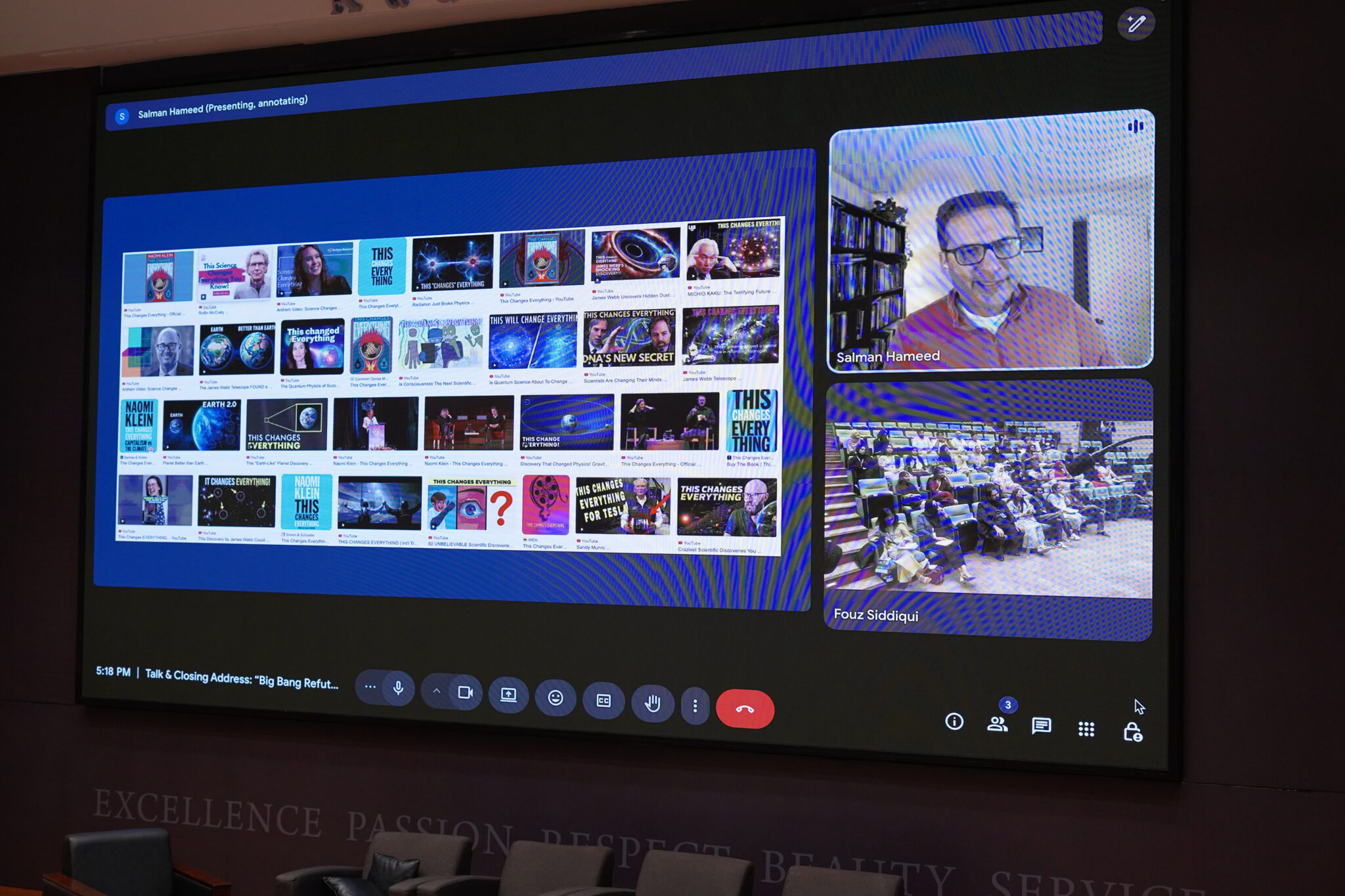
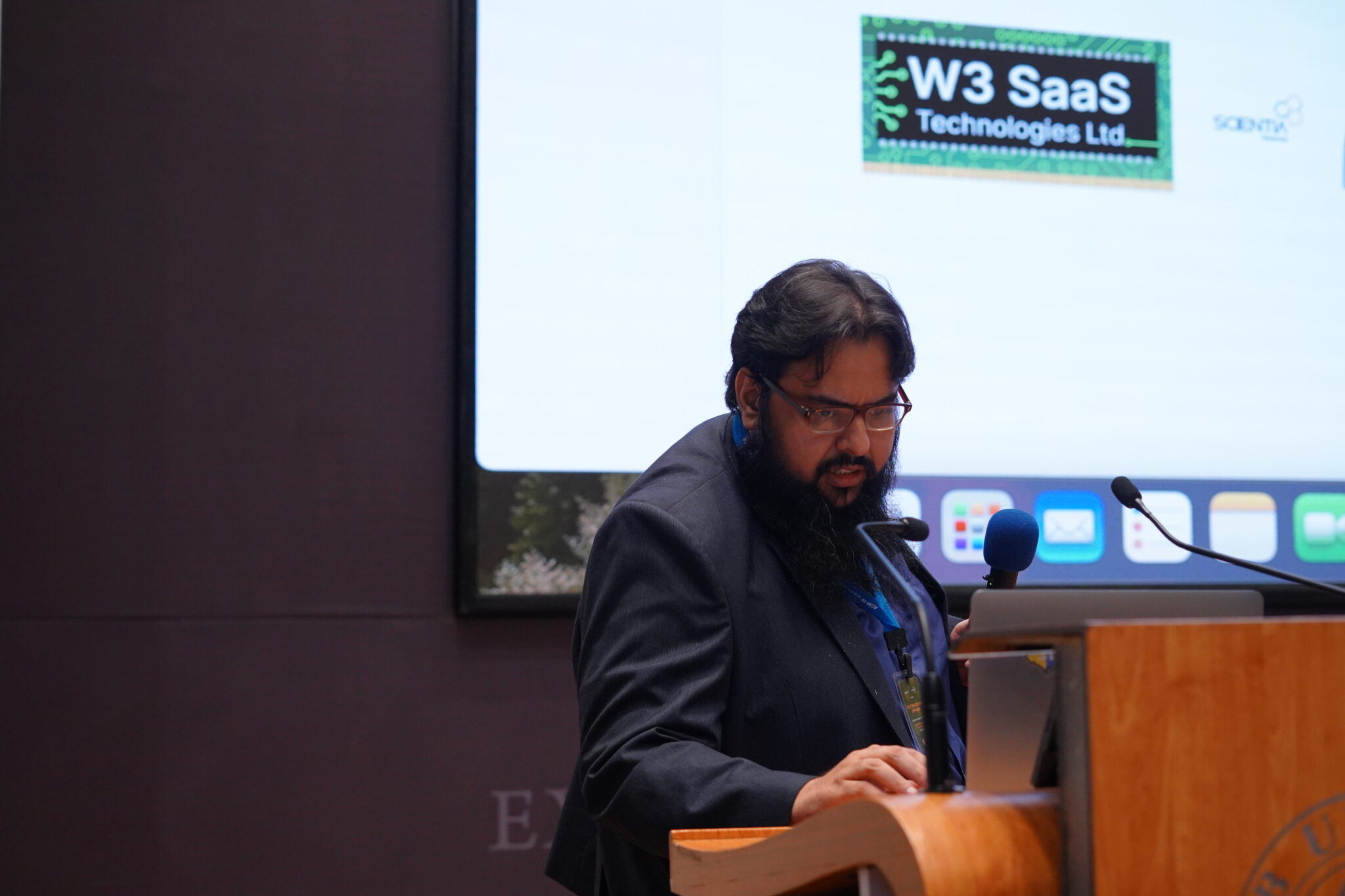
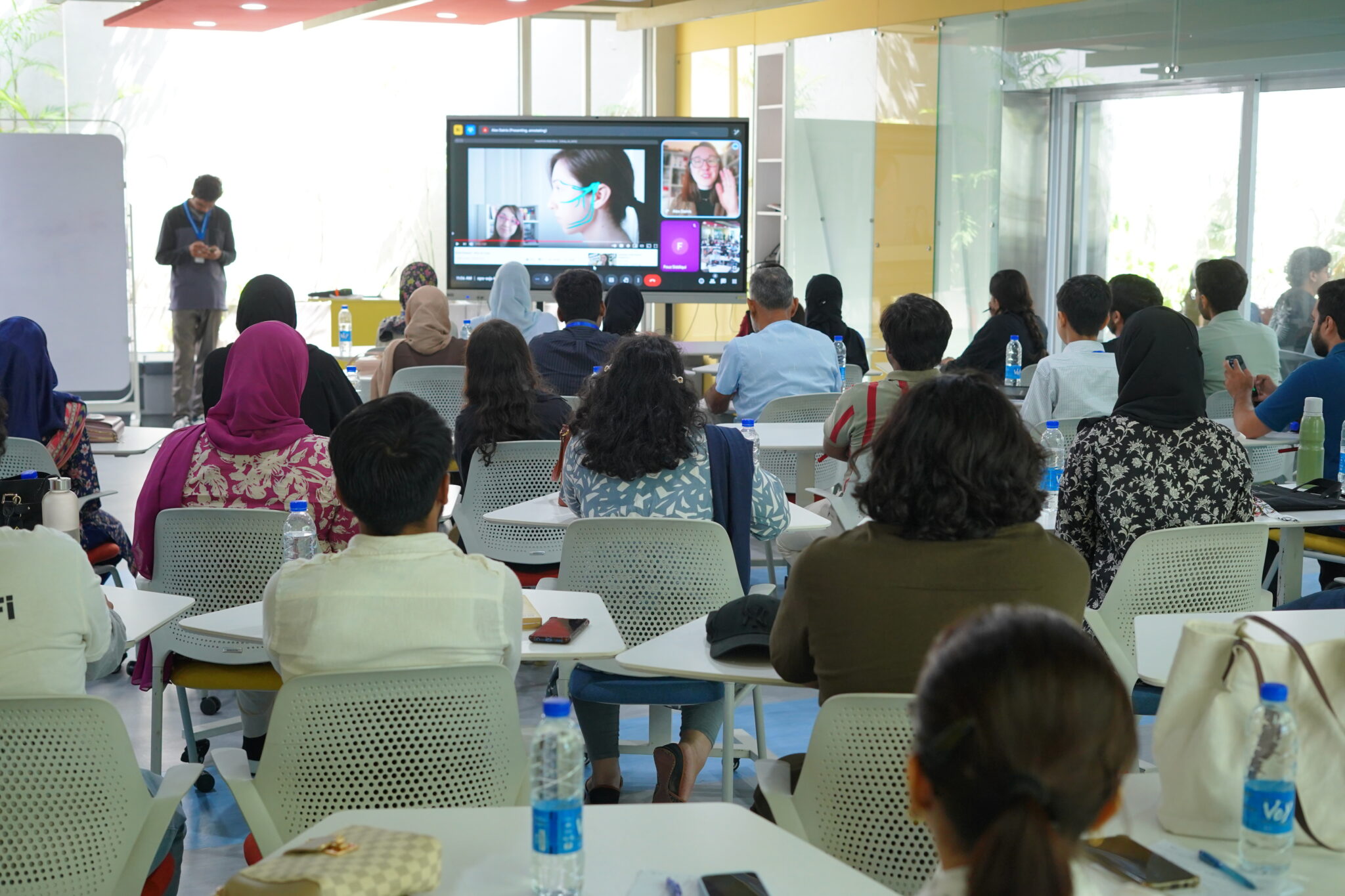

More from the Author: Caring in Crisis— Protecting Pregnant Women and Newborns from Climate Change Fallout

Saadeqa Khan is the founder, CEO, & Editor-in-Chief of Scientia Pakistan. She’s a member of the Oxford Climate Journalism Network (Second Cohort) and NASW. Saadeqa is a fellow of NPF Washington, The Falling Walls Foundation, and the Science Journalism Forum. Saadeqa has won several international journalism grants and awards for her reports.
